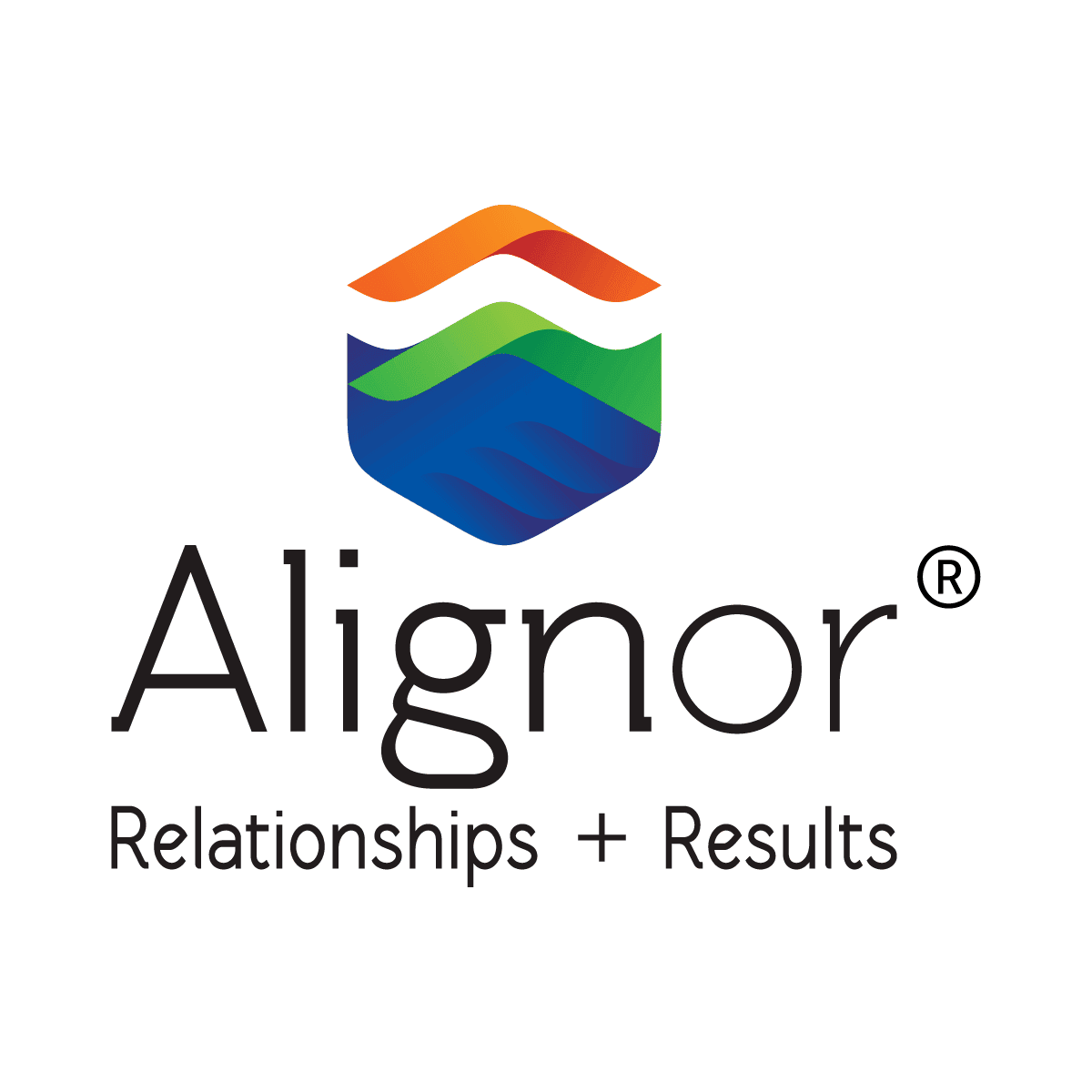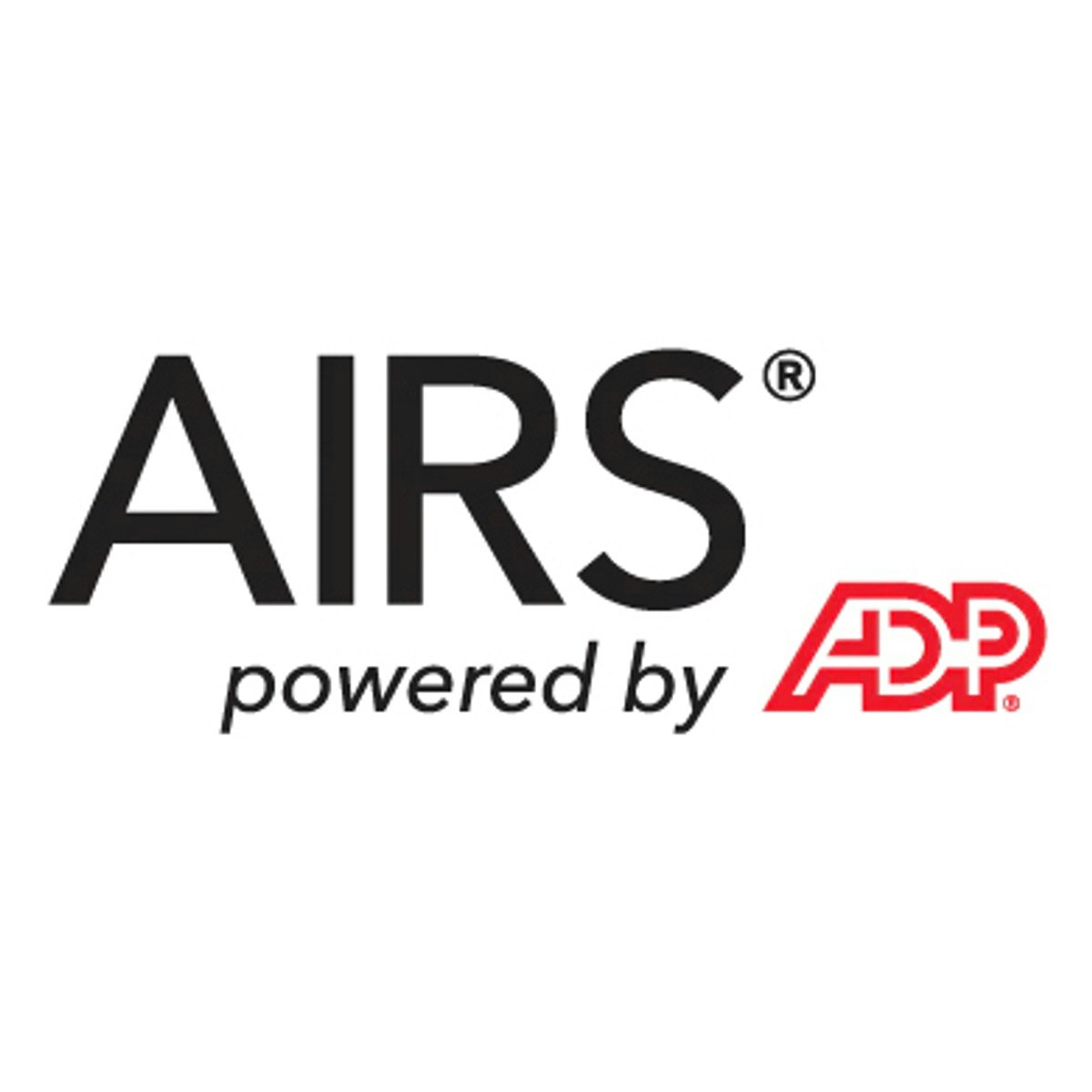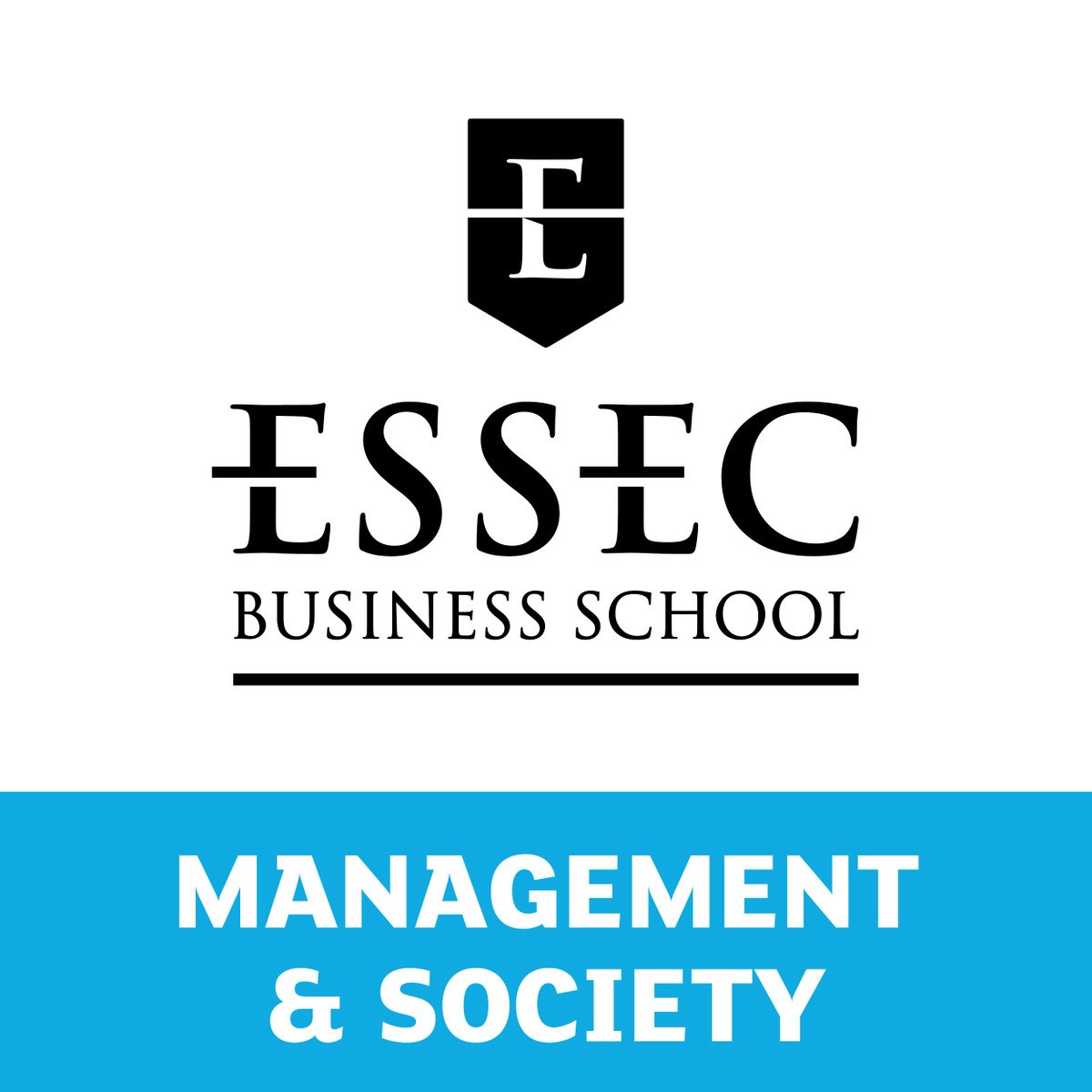Employee Relations Manager
vigating the Workplace: A Comprehensive Guide to Becoming an Employee Relations Manager
An Employee Relations Manager plays a crucial role in fostering a positive and productive work environment. This professional is responsible for developing, implementing, and managing strategies and policies that govern the relationship between an organization and its employees. At its core, employee relations is about cultivating a fair, respectful, and engaging workplace where employees feel valued and motivated. This involves a wide array of responsibilities, from mediating conflicts and addressing grievances to ensuring compliance with labor laws and promoting a healthy organizational culture.
Individuals drawn to this field often find the dynamic nature of the work stimulating. They are pivotal in shaping the employee experience, directly impacting how individuals feel about their jobs and the company. The opportunity to resolve complex interpersonal issues, contribute to a fair and ethical workplace, and help build a strong, cohesive team can be incredibly rewarding. Furthermore, as employee well-being and a positive company culture become increasingly recognized as key drivers of business success, the strategic importance of Employee Relations Managers continues to grow.
Introduction to Employee Relations Management
Employee Relations Management is a specialized function within Human Resources dedicated to creating and maintaining a positive relationship between an organization and its workforce. It encompasses a broad range of activities aimed at fostering a harmonious, productive, and fair workplace. This involves not only reacting to issues as they arise but also proactively developing programs and policies that support employee well-being, engagement, and development. The scope of an Employee Relations Manager's role can vary depending on the size and structure of the organization but generally includes managing employee grievances, ensuring legal compliance, and shaping the overall workplace culture.
A key aspect of this field is understanding that every employee interaction, policy, and communication contributes to the overall employee relations climate. Therefore, a strategic and empathetic approach is essential. Professionals in this role act as a bridge between employees and management, working to ensure that both parties' needs and concerns are heard and addressed effectively.
Defining the Role and Scope of an Employee Relations Manager
An Employee Relations Manager is a strategic partner within an organization, tasked with cultivating a positive and productive environment where employees can thrive. Their primary focus is on the relationship between the organization and its employees, ensuring that this relationship is fair, respectful, and mutually beneficial. This involves a multifaceted approach that blends policy development, conflict resolution, and proactive engagement initiatives.
The scope of their responsibilities is broad. They are often the go-to people for interpreting and applying employment laws and company policies, ensuring the organization operates within legal and ethical boundaries. They manage and investigate employee complaints and grievances, facilitate mediation, and work to find solutions that are equitable for all parties involved. Furthermore, Employee Relations Managers play a vital role in developing and implementing programs that enhance employee morale, engagement, and retention.
Essentially, they are guardians of the workplace culture, working to ensure it is one where employees feel safe, valued, and empowered. This requires a deep understanding of human behavior, organizational dynamics, and employment law. They must be adept communicators, skilled negotiators, and empathetic listeners to effectively navigate the complexities of workplace relationships.
Historical Evolution of Employee Relations in Organizations
The concept of employee relations has evolved significantly over time, mirroring shifts in societal values, economic conditions, and legal frameworks. In the early days of industrialization, the focus was primarily on managing labor as a means of production, often with little regard for worker well-being. This era was characterized by adversarial relationships between employers and employees, leading to the rise of labor unions advocating for better wages, working conditions, and job security.
As labor laws became more established and societal expectations changed, organizations began to recognize the importance of a more human-centric approach. The Human Relations movement in the mid-20th century emphasized the psychological and social aspects of work, highlighting the impact of employee satisfaction on productivity. This led to a greater focus on communication, motivation, and leadership within organizations.
In recent decades, employee relations has become increasingly strategic. Factors such as globalization, technological advancements, and a greater emphasis on corporate social responsibility have further shaped the field. Today, effective employee relations is seen not just as a way to avoid legal issues or manage conflict, but as a critical component of attracting and retaining talent, fostering innovation, and achieving organizational goals. The focus has expanded to include areas like diversity and inclusion, employee well-being, and creating a positive overall employee experience.
Key Objectives: Conflict Resolution, Compliance, and Workplace Culture
The work of an Employee Relations Manager is guided by several key objectives, all aimed at fostering a healthy and productive workplace. Firstly, conflict resolution is a paramount concern. Workplace disputes, if left unaddressed, can escalate, leading to decreased morale, lower productivity, and even legal repercussions. Employee Relations Managers are skilled in mediating disagreements, investigating complaints thoroughly and impartially, and finding solutions that are fair and sustainable. Their goal is to address issues at the earliest possible stage, preventing them from becoming larger problems.
Secondly, ensuring compliance with all relevant labor laws and organizational policies is a critical responsibility. This involves staying abreast of ever-changing legislation, developing and implementing compliant policies, and training managers and employees on their rights and obligations. Failure to comply can result in significant fines, lawsuits, and damage to the organization's reputation. Therefore, a meticulous and proactive approach to compliance is essential.
Finally, Employee Relations Managers play a significant role in shaping and maintaining a positive workplace culture. This involves promoting open communication, fostering an environment of trust and respect, and implementing initiatives that enhance employee engagement and well-being. A strong, positive culture not only helps in attracting and retaining top talent but also contributes to higher levels of innovation and overall organizational success.
These courses offer insights into managing employee relations and fostering a positive work environment, covering crucial aspects like conflict resolution and employee engagement.
Core Responsibilities of an Employee Relations Manager
The daily work of an Employee Relations Manager is diverse and impactful, revolving around the core principle of fostering a fair, respectful, and productive workplace. These professionals are at the forefront of managing the intricate dynamics between an organization and its employees. Their responsibilities are crucial for maintaining a harmonious work environment, ensuring legal adherence, and ultimately contributing to the overall success and stability of the company.
From addressing individual employee concerns to shaping broad organizational policies, an Employee Relations Manager's duties require a blend of interpersonal skills, legal knowledge, and strategic thinking. They act as advisors, mediators, investigators, and policy developers, navigating complex situations with sensitivity and professionalism. Understanding these core responsibilities provides a clearer picture of the vital role these managers play within any organization.
Mediating Workplace Disputes and Employee Grievances
One of the most visible and critical responsibilities of an Employee Relations Manager is mediating workplace disputes and handling employee grievances. Conflicts can arise from a multitude of sources, including interpersonal disagreements, perceived unfair treatment, or misunderstandings about policies and procedures. When these issues surface, the Employee Relations Manager steps in to provide a structured and impartial process for resolution.
This often involves conducting thorough investigations into complaints, interviewing involved parties, and gathering relevant evidence. The goal is to understand the root cause of the conflict and facilitate a resolution that is fair and consistent with company policy and legal requirements. Mediation skills are paramount, as the manager strives to help parties find common ground and reach mutually acceptable solutions whenever possible. Effective grievance handling not only resolves individual issues but also helps to build trust and reinforce a culture of fairness within the organization.
Successful mediation requires active listening, empathy, and the ability to remain neutral even in emotionally charged situations. The Employee Relations Manager must be skilled in de-escalating tensions and guiding conversations toward constructive outcomes. They also play a role in documenting the process and outcomes, ensuring transparency and accountability.
To develop skills in handling workplace conflicts and understanding employee concerns, these courses provide valuable frameworks and practical techniques.
Ensuring Compliance with Labor Laws and Organizational Policies
A cornerstone of the Employee Relations Manager's role is ensuring the organization's adherence to a complex web of labor laws and internal policies. This involves staying current with federal, state, and local employment legislation, which can cover everything from wage and hour requirements to anti-discrimination laws and workplace safety standards. The legal landscape is constantly evolving, so continuous learning and vigilance are crucial.
Employee Relations Managers are responsible for developing, interpreting, and communicating HR policies and procedures to ensure they are not only compliant but also clearly understood by all employees. This can involve drafting employee handbooks, conducting training sessions for managers and staff, and providing guidance on policy application in specific situations. They also play a key role in conducting internal audits to identify and rectify any potential compliance gaps.
When policy violations or legal concerns arise, such as allegations of harassment or discrimination, the Employee Relations Manager typically leads or oversees the investigation process. This requires a meticulous and objective approach to gathering facts, interviewing witnesses, and making determinations based on evidence. Their work in this area is vital for mitigating legal risks and upholding the organization's commitment to a fair and ethical workplace.
These books delve into the complexities of human resource management, including legal compliance and policy development, which are crucial for Employee Relations Managers.
You may also find these topics useful for understanding the broader context of HR and compliance.
Developing Employee Engagement and Retention Strategies
Beyond reactive problem-solving and compliance, Employee Relations Managers proactively contribute to creating a workplace where employees feel valued, motivated, and committed to the organization. Developing and implementing effective employee engagement strategies is a key part of this. Engaged employees are typically more productive, innovative, and less likely to leave the company.
This involves understanding the drivers of employee satisfaction and morale within their specific organization. Employee Relations Managers may analyze employee feedback from surveys, conduct focus groups, or work with leadership to identify areas for improvement. Based on these insights, they might champion initiatives such as recognition programs, career development opportunities, wellness programs, or efforts to enhance work-life balance.
Retention strategies are closely linked to engagement. By fostering a positive work environment and addressing employee concerns effectively, Employee Relations Managers help to reduce turnover. High turnover can be costly for organizations, both financially and in terms of lost knowledge and morale. Therefore, their efforts to create a supportive and rewarding workplace directly contribute to the organization's stability and long-term success. They may also be involved in analyzing turnover data to identify trends and develop targeted interventions.
These courses provide actionable insights into fostering employee engagement and creating a positive workplace culture, which are key to retaining talent.
Skills and Qualifications
Embarking on a career as an Employee Relations Manager, or advancing within the field, requires a distinct set of skills and qualifications. This role demands more than just a general understanding of human resources; it necessitates a deep expertise in navigating complex interpersonal dynamics, a strong grasp of legal frameworks, and the ability to think strategically about the employee experience. Aspiring professionals should focus on cultivating these competencies through education, experience, and continuous professional development.
The journey to becoming an effective Employee Relations Manager is often built on a foundation of relevant academic qualifications complemented by practical, real-world experience. Furthermore, professional certifications can play a significant role in validating expertise and enhancing career prospects. Understanding these key components will help individuals chart a clear path toward this rewarding and challenging profession.
Essential Skills: Communication, Conflict Resolution, Legal Knowledge
To excel as an Employee Relations Manager, a robust skill set is indispensable. At the forefront is exceptional communication. This encompasses not only clear and concise verbal and written expression but also active listening, empathy, and the ability to tailor communication to diverse audiences, from frontline employees to senior executives. Effectively conveying policies, mediating disputes, and providing counsel all hinge on superior communication abilities.
Strong conflict resolution skills are equally critical. Employee Relations Managers are frequently tasked with de-escalating tense situations, investigating sensitive complaints, and facilitating solutions to workplace disagreements. This requires impartiality, analytical thinking, problem-solving capabilities, and the ability to guide parties toward mutually acceptable outcomes. Negotiation and mediation techniques are often employed to navigate these complex interpersonal challenges.
A solid understanding of legal knowledge pertaining to employment and labor law is non-negotiable. This includes familiarity with legislation related to discrimination, harassment, wages and hours, leave entitlements, and union relations. While not necessarily requiring a law degree, a deep and current understanding of these legal frameworks is essential for ensuring compliance, mitigating risk, and providing sound advice to both employees and management.
These courses can help build the foundational skills in communication and conflict management necessary for an Employee Relations Manager.
For further reading on developing key competencies, these books offer valuable insights.
Understanding different aspects of human behavior and management is also beneficial.
Educational Pathways: Degrees in HR, Psychology, or Business
A bachelor's degree is generally considered the minimum educational requirement for entry into the Human Resources field, and often a prerequisite for an Employee Relations Manager role. Common degree choices include Human Resources Management, which provides a direct and comprehensive understanding of HR principles, practices, and employment law. This focused education equips graduates with the foundational knowledge crucial for navigating the complexities of employee relations.
Degrees in Psychology can also be highly beneficial. Understanding human behavior, motivation, and interpersonal dynamics is central to effectively managing employee relations, mediating conflicts, and fostering a positive workplace culture. A psychology background can provide valuable insights into why employees behave the way they do and how to address issues with empathy and understanding.
A degree in Business Administration or Management, particularly with a concentration in HR or organizational behavior, is another viable pathway. These programs offer a broader understanding of organizational functions, strategy, and operations, which can be advantageous in aligning employee relations initiatives with overall business objectives. Regardless of the specific major, coursework in areas like employment law, organizational behavior, ethics, and communication is highly recommended.
For those looking to deepen their expertise or advance to more senior roles, a master's degree in Human Resources, Labor Relations, or an MBA with an HR concentration can be a significant asset. These advanced degrees often provide more specialized knowledge and strategic perspectives.
These foundational courses can provide an introduction to management and HR principles, which are relevant for aspiring Employee Relations Managers.
Certifications (e.g., SHRM-CP, PHR) and Their Relevance
Professional certifications can significantly enhance the credibility and career prospects of an Employee Relations Manager. Certifications like the Society for Human Resource Management Certified Professional (SHRM-CP) or Senior Certified Professional (SHRM-SCP) are widely recognized in the HR field. These credentials demonstrate a comprehensive understanding of HR competencies and knowledge, including employee relations, employment law, and strategic HR management.
The HR Certification Institute (HRCI) also offers valuable certifications, such as the Professional in Human Resources (PHR) and Senior Professional in Human Resources (SPHR). These certifications validate an individual's expertise in the operational and strategic aspects of HR management. Earning these credentials typically requires meeting specific educational and experience criteria and passing a rigorous examination.
While not always mandatory, holding a relevant certification can provide a competitive edge in the job market. It signals to employers a commitment to the HR profession, a mastery of core HR principles, and dedication to ongoing professional development. For Employee Relations Managers, who deal with complex and often sensitive issues, such certifications can underscore their qualifications and expertise in navigating the intricacies of workplace dynamics and legal compliance. Many employers view certifications favorably, and some may even prefer or require them for management-level HR roles.
These courses are specifically designed to help individuals prepare for SHRM certification exams, which are highly relevant for Employee Relations professionals.
Understanding the broader field of human resource management is key, and this topic provides more context.
Education Pathways for Employee Relations Managers
The journey to becoming an Employee Relations Manager typically begins with a solid educational foundation. While direct experience plays a crucial role in career advancement, formal education provides the necessary theoretical knowledge and understanding of principles that underpin effective employee relations practices. Universities and colleges offer various programs that can equip aspiring professionals with the competencies needed for this demanding yet rewarding field.
From undergraduate degrees that lay the groundwork to specialized graduate programs that offer deeper expertise, the educational pathways are varied. Furthermore, the practical application of learned concepts through internships and other experiential learning opportunities is invaluable. These experiences allow students to translate classroom knowledge into real-world skills, preparing them for the complexities of managing workplace relationships.
Undergraduate and Graduate Programs in HR Management
For those aspiring to a career in Employee Relations, pursuing an undergraduate degree in Human Resources Management is a common and direct path. These programs typically cover a wide range of HR functions, including recruitment, compensation, benefits, training, and, importantly, employee and labor relations. Students gain an understanding of employment law, organizational behavior, and conflict resolution techniques, all of which are essential for an Employee Relations Manager.
Alternatively, degrees in related fields such as Business Administration with an HR concentration, Psychology, Sociology, or Communications can also provide a strong foundation. These programs offer broader perspectives on organizational dynamics, human behavior, and effective communication strategies, which are highly transferable to the employee relations domain.
For individuals seeking advanced roles or deeper specialization, a graduate degree can be a significant asset. Master's programs in Human Resources Management, Labor Relations, or Industrial Relations offer more in-depth study of complex employee relations issues, strategic HR management, and advanced legal topics. An MBA with a specialization in Human Resources is another option for those interested in combining HR expertise with broader business acumen. These advanced degrees can open doors to leadership positions and enhance earning potential.
These introductory courses cover fundamental aspects of HR and management, suitable for those exploring educational pathways in the field.
Relevant Coursework: Employment Law, Organizational Behavior
Within any relevant degree program, certain areas of coursework are particularly vital for aspiring Employee Relations Managers. A strong grounding in Employment Law is fundamental. Courses in this area cover topics such as discrimination and harassment laws, wage and hour regulations, leave policies (like FMLA), union organizing, and collective bargaining. Understanding these legal frameworks is critical for ensuring compliance and navigating employee disputes effectively.
Organizational Behavior is another key subject. These courses explore individual and group behavior within organizational settings, covering topics like motivation, leadership, team dynamics, organizational culture, and change management. This knowledge helps Employee Relations Managers understand the underlying factors that influence employee attitudes and actions, enabling them to develop more effective strategies for engagement and conflict resolution.
Additional valuable coursework includes subjects like Ethics in Business, which is crucial for handling sensitive employee issues with integrity; Communication Studies, which hones skills in interpersonal communication, negotiation, and mediation; and courses on Compensation and Benefits, Performance Management, and Training and Development, as these areas often intersect with employee relations matters. Even courses in research methods and statistics can be beneficial for analyzing employee data and trends.
These courses offer a deeper dive into organizational behavior and people management, essential knowledge for an Employee Relations Manager.
Further exploration of these topics can provide a comprehensive understanding.
The Role of Internships and Practicums in Skill-Building
While academic coursework provides essential knowledge, internships and practicums offer invaluable opportunities to develop practical skills and gain real-world experience in employee relations. These experiential learning opportunities allow students to apply theoretical concepts in an actual workplace setting, under the guidance of experienced HR professionals. This hands-on experience is highly valued by employers and can significantly enhance a graduate's job prospects.
During an internship, students might assist with tasks such as policy research, drafting employee communications, observing or participating in investigations (with appropriate oversight), helping to organize employee engagement activities, or learning about grievance procedures. These experiences provide a firsthand look at the day-to-day responsibilities and challenges of an Employee Relations Manager. It's a chance to develop crucial soft skills like communication, problem-solving, and teamwork in a professional context.
Practicums, which are often more structured and integrated into academic programs, can offer focused projects or case studies related to employee relations. These can help students deepen their understanding of specific issues and develop analytical and strategic thinking skills. Both internships and practicums provide excellent networking opportunities, allowing students to connect with professionals in the field who can offer guidance, mentorship, and potential job leads in the future. Actively seeking out and making the most of these experiences is a crucial step in building a successful career in employee relations.
These resources provide insights into human capital management and the broader HR landscape, which can be beneficial for students seeking practical experience.
Books on strategic HR can also provide context for practical skill application.
Understanding human capital is fundamental to HR practices.
Online Learning and Professional Development
In today's rapidly evolving work environment, continuous learning is paramount for Employee Relations Managers. The landscape of employment law, workplace best practices, and employee expectations is constantly shifting. Online learning platforms and professional development opportunities offer accessible and flexible ways for individuals to acquire new knowledge, hone existing skills, and stay current in their field. Whether you are just starting your journey, seeking to supplement formal education, or aiming to advance your career, online resources can be incredibly valuable.
For those new to the field or considering a career pivot, online courses can provide a foundational understanding of employee relations principles. For seasoned professionals, they offer avenues for specialization, learning about emerging trends, or preparing for certifications. The key is to approach online learning with a strategic mindset, selecting resources that align with your career goals and learning needs. Remember, investing in your professional development is an investment in your future success in this dynamic and critical HR function.
Key Topics Covered in Online HR Courses
Online HR courses catering to aspiring and current Employee Relations Managers cover a wide spectrum of essential topics. Many courses focus on the fundamentals of Human Resource Management, providing an overview of HR functions, strategic HR planning, and the role of HR in organizational success. This broad understanding is crucial before delving into the specifics of employee relations.
Specific to employee relations, you'll find courses on Employment Law and Compliance, which are critical for understanding legal obligations related to hiring, discrimination, harassment, wages, and termination. Courses on Conflict Resolution and Mediation equip learners with techniques to handle workplace disputes effectively and impartially. Additionally, topics like Employee Engagement and Retention are frequently covered, teaching strategies to foster a positive work environment and motivate employees.
Other important areas often addressed in online HR courses include Performance Management (covering appraisals, feedback, and disciplinary processes), Workplace Investigations (detailing how to conduct fair and thorough investigations into employee complaints), and Diversity, Equity, and Inclusion (DEI) (focusing on creating inclusive workplaces and managing diverse teams). Some courses may also touch upon HR analytics, teaching how to use data to inform employee relations strategies. OpenCourser's Humanities and Social Sciences categories also offer courses that can provide broader context on human behavior and societal trends relevant to employee relations.
These online courses offer comprehensive learning on core HR topics, including employee relations, engagement, and legal aspects, directly relevant to the responsibilities of an Employee Relations Manager.
For deeper understanding, these books cover critical aspects of HR management and performance.
Exploring these related topics can further enhance your understanding of the field.
Balancing Self-Paced Learning with Formal Education
For many, the journey into employee relations involves a blend of formal education, such as a bachelor's or master's degree, and self-paced online learning. These two approaches are not mutually exclusive; rather, they can complement each other effectively. Formal education provides a structured, comprehensive curriculum and often includes valuable interactions with faculty and peers. It lays a strong theoretical foundation and can lead to recognized credentials.
Self-paced online courses, on the other hand, offer flexibility and accessibility. They allow learners to focus on specific skill gaps or areas of interest at their own convenience. For instance, someone with a psychology degree might use online courses to gain specific knowledge in employment law, while an experienced HR generalist might take an advanced online course in conflict mediation. OpenCourser makes it easy to browse through thousands of courses to find specific topics.
The key to successfully balancing these approaches is to be strategic. Identify your learning goals and determine which format best suits each objective. Online courses can be particularly useful for staying updated on new legislation, learning about emerging HR technologies, or acquiring specialized skills that may not have been covered extensively in a formal degree program. If you're on a budget, remember to check for available deals on online courses to make learning more affordable. This combination allows for continuous professional development, adapting to the evolving demands of the Employee Relations Manager role.
These courses are well-suited for self-paced learning and cover essential HR skills that can supplement formal education.
Using Certifications to Bridge Skill Gaps
Professional certifications, such as the SHRM-CP, SHRM-SCP, PHR, or SPHR, can be powerful tools for bridging skill gaps and demonstrating a commitment to the HR profession. For individuals transitioning into employee relations from other fields, or for those looking to advance into management roles, certifications can validate their knowledge and expertise across a broad range of HR competencies.
The preparation process for these certification exams often involves a comprehensive review of key HR domains, including employee and labor relations, employment law, talent acquisition, compensation, and strategic HR. This rigorous study can effectively fill in knowledge gaps that may exist from one's formal education or prior work experience. For example, someone with strong interpersonal skills but limited formal training in labor law can significantly bolster their understanding by preparing for and obtaining a relevant certification.
Moreover, certifications often require ongoing recertification through continuing education credits. This encourages professionals to stay current with the latest developments, trends, and legal changes in the HR field, ensuring their skills remain relevant. Employers often view certifications as a mark of professionalism and dedication, which can be particularly advantageous when seeking roles that require a high level of trust and expertise, such as an Employee Relations Manager. OpenCourser's Learner's Guide offers articles that can help you understand how to effectively leverage certifications in your career.
These courses provide preparation for widely recognized HR certifications, which can help in formalizing skills and knowledge in employee relations.
This topic is central to the role and can be significantly enhanced by certification.
Career Progression and Advancement
The role of an Employee Relations Manager is often a significant milestone in an HR professional's career, but it also serves as a launchpad for further advancement and diverse opportunities. The skills and experience gained in managing complex employee issues, navigating legal landscapes, and shaping workplace culture are highly transferable and valued across various senior HR and leadership positions. Understanding the typical career trajectory can help aspiring and current Employee Relations Managers strategically plan their professional development and identify potential future paths.
Progression is rarely linear, and opportunities can arise in specialized areas or broader leadership roles. For those with ambition and a commitment to continuous learning, the field of employee relations offers a dynamic and rewarding career journey. It's a path that encourages a deep understanding of the human element in organizations, making it both challenging and profoundly impactful.
Entry-Level Roles Leading to Employee Relations Manager (e.g., HR Generalist)
The path to becoming an Employee Relations Manager often begins with foundational roles within the Human Resources department. An HR Generalist position is a very common starting point. In this capacity, individuals gain exposure to a wide array of HR functions, including recruitment, onboarding, benefits administration, payroll, and initial handling of employee inquiries and concerns. This broad experience provides a holistic understanding of the employee lifecycle and the various touchpoints where employee relations issues can arise.
Other entry-level or early-career roles that can pave the way include HR Coordinator, HR Assistant, or even specialized roles like Recruiter or Training Coordinator. While these positions may not have "employee relations" in the title, they offer opportunities to develop essential skills in communication, problem-solving, policy interpretation, and interacting with employees at all levels. Building a strong track record of professionalism, empathy, and a proactive approach in these initial roles is crucial.
As individuals gain experience and demonstrate competence in handling more complex employee matters, they may take on increasing responsibilities related to employee relations, such as assisting with investigations, helping to draft policies, or supporting employee engagement initiatives. This gradual accumulation of experience and proven ability in managing sensitive situations typically positions them for promotion to an Employee Relations Specialist or, eventually, an Employee Relations Manager role.
These courses cover fundamental HR skills and talent management, which are excellent starting points for a career leading to Employee Relations Management.
Consider these books for a comprehensive understanding of HR principles.
These topics are foundational to understanding the HR field.
Leadership Pathways: Senior ER Manager, HR Director
Once established as an Employee Relations Manager, several leadership pathways can open up. A natural progression is to a Senior Employee Relations Manager role, particularly in larger organizations. This position typically involves overseeing a team of ER specialists, handling more complex or high-risk cases, developing ER strategy, and working closely with senior leadership on critical employee matters.
With continued experience and a proven track record of strategic impact, an Employee Relations Manager can advance to broader HR leadership roles, such as HR Director or Vice President of Human Resources. In these positions, employee relations remains a key area of responsibility, but the scope expands to encompass all aspects of human resource management, including talent strategy, organizational development, compensation and benefits, and HR technology. The strategic thinking, problem-solving, and leadership skills honed as an ER Manager are highly valuable at this level.
Some individuals may also choose to specialize further within employee relations, perhaps focusing on labor relations (if the organization is unionized) or becoming a subject matter expert in areas like workplace investigations or employment law compliance. The ability to influence organizational culture and drive positive change from these senior roles can be immensely rewarding.
These courses are geared towards developing leadership and advanced HR management skills, suitable for those aiming for senior roles.
Books on leadership and strategic HR can provide valuable insights for career advancement.
Aspiring leaders might also consider roles like these:
Transitioning to Consultancy or Specialized Compliance Roles
The expertise gained as an Employee Relations Manager also opens doors to opportunities outside of a traditional corporate HR department. One such path is HR consultancy. Experienced ER professionals can leverage their knowledge to advise multiple organizations on a project basis. This might involve helping companies develop ER policies, conduct complex investigations, provide training on employment law, or mediate disputes. Consultancy offers variety, autonomy, and the chance to work with diverse clients and industries.
Another avenue is to move into highly specialized compliance roles. With their deep understanding of employment law and regulatory requirements, ER Managers are well-suited for positions focused purely on ensuring organizational adherence to legal standards. This could involve roles like Compliance Officer, Ethics Officer, or positions within legal departments focusing on employment matters. These roles require meticulous attention to detail, strong analytical skills, and the ability to stay ahead of evolving legislation.
Some Employee Relations Managers may also transition into roles in mediation or arbitration services, either independently or with established firms. Their skills in conflict resolution and negotiation are directly applicable in these fields. The ability to remain impartial and guide parties toward resolution is a valuable asset in alternative dispute resolution.
For those interested in the legal and ethical aspects of HR, these courses and resources can be beneficial for specializing in compliance or consultancy.
These topics highlight specialized areas relevant to consultancy and compliance.
Ethical and Legal Challenges
The role of an Employee Relations Manager is intrinsically linked with navigating a complex landscape of ethical and legal challenges. These professionals are often at the forefront of handling sensitive situations where the well-being of employees, the integrity of the organization, and compliance with the law are all at stake. Maintaining a strong ethical compass and a thorough understanding of legal obligations is not just a part of the job; it's foundational to it.
Successfully managing these challenges requires a proactive approach, continuous learning, and an unwavering commitment to fairness and due process. Employee Relations Managers must be adept at identifying potential ethical pitfalls and legal risks, and implementing strategies to mitigate them. This section delves into some of the most common and critical ethical and legal considerations in this field.
Navigating Confidentiality and Employee Privacy
Employee Relations Managers regularly handle sensitive and personal information about employees. This can range from details of medical conditions disclosed during leave requests, to personal circumstances shared during grievance procedures, to performance issues and disciplinary actions. Upholding confidentiality is paramount. Breaches of confidentiality can severely damage trust between employees and the HR department, and can also have legal ramifications.
Managers must be meticulous about how employee information is collected, stored, and shared. Access to sensitive data should be restricted to those with a legitimate need to know. Clear policies and procedures regarding data privacy and confidentiality must be in place and consistently followed. This includes adhering to data protection laws, which vary by jurisdiction but generally impose strict requirements on handling personal data.
Balancing the need for confidentiality with the need for transparency during investigations or when addressing workplace issues can be a delicate act. Employee Relations Managers must be skilled in communicating necessary information without divulging unnecessary personal details. They also play a role in educating other managers and employees about the importance of respecting privacy and maintaining confidentiality in workplace matters.
These courses address ethical practices and handling sensitive information, crucial for navigating confidentiality and privacy in employee relations.
This book provides insights into managing sensitive employee data and ethical considerations.
The topic of workplace ethics is central to these challenges.
Addressing Discrimination and Harassment Cases
One of the most serious and challenging aspects of an Employee Relations Manager's role is addressing allegations of discrimination and harassment. Organizations have a legal and ethical obligation to provide a workplace free from such misconduct. This includes discrimination based on protected characteristics like race, gender, religion, age, disability, or sexual orientation, as well as all forms of harassment, including sexual harassment.
When complaints arise, Employee Relations Managers are typically responsible for ensuring that prompt, thorough, and impartial investigations are conducted. This involves interviewing the complainant, the accused, and any witnesses; gathering and reviewing relevant evidence; and making objective findings. The process must be handled with extreme sensitivity, ensuring that all parties are treated fairly and that retaliation against those who report or participate in investigations is strictly prohibited.
Beyond investigating specific complaints, Employee Relations Managers also play a crucial role in preventing discrimination and harassment. This includes developing and implementing strong anti-discrimination and anti-harassment policies, providing regular training to all employees and managers on these policies and expected workplace conduct, and fostering a culture where such behavior is not tolerated and where employees feel safe reporting concerns.
These courses are vital for understanding and addressing issues of discrimination, harassment, and promoting an inclusive workplace.
Books on diversity and inclusion can provide further depth on these critical topics.
These topics are directly related to creating a fair and respectful work environment.
Staying Updated on Labor Law Changes (e.g., Remote Work Regulations)
The legal landscape governing employment is dynamic, with new laws, regulations, and court decisions emerging regularly. Employee Relations Managers have a critical responsibility to stay informed about these changes to ensure their organization remains compliant. This includes updates to federal laws, as well as state and local ordinances, which can vary significantly and add layers of complexity.
Recent years, for example, have seen significant developments in areas like remote work regulations, pay transparency laws, non-compete agreement limitations, and protections for gig economy workers. Changes in data privacy laws also impact how employee information can be handled. Staying current requires ongoing effort, such as subscribing to legal updates, attending seminars and webinars, participating in professional HR organizations, and consulting with legal counsel when necessary.
Once new legal requirements are understood, Employee Relations Managers must then work to update company policies and procedures accordingly, communicate these changes to employees and managers, and ensure that practices are aligned with the new standards. This proactive approach to legal updates is essential for mitigating risks, avoiding penalties, and maintaining a reputation as a fair and law-abiding employer. The U.S. Department of Labor is a key resource for federal labor law information.
These resources help in understanding HR laws and managing talent effectively, which are crucial for staying updated in the field.
This book provides a solid foundation in Human Resource Management, including legal aspects.
Global Perspectives in Employee Relations
As organizations increasingly operate across borders, Employee Relations Managers may find themselves navigating the complexities of a global workforce. Managing employee relations in a multinational context introduces a new layer of challenges and considerations. Cultural nuances, diverse legal frameworks, and varying labor practices across different countries require a sophisticated and adaptable approach.
Effective global employee relations extends beyond simple translation of domestic policies. It demands a deep understanding of local contexts and a commitment to fostering an inclusive and equitable environment for all employees, regardless of their location. Professionals in this sphere must be culturally sensitive, strategically agile, and well-versed in international labor standards to succeed.
Cultural Differences in Conflict Resolution Approaches
Conflict is a universal aspect of human interaction, but the way it is perceived, expressed, and resolved can vary significantly across cultures. What might be considered a direct and acceptable way to address a disagreement in one culture could be seen as confrontational or disrespectful in another. Employee Relations Managers working in global organizations must be acutely aware of these cultural differences when mediating disputes or implementing conflict resolution processes.
For instance, some cultures may favor direct communication and individual accountability in resolving conflicts, while others might prioritize harmony, indirect communication, and collective decision-making. The role of hierarchy and authority in conflict resolution can also differ. Understanding these nuances is crucial for developing approaches that are perceived as fair and effective by employees from diverse cultural backgrounds.
This requires not only cultural awareness training but also a willingness to adapt strategies. A one-size-fits-all approach to conflict resolution is unlikely to succeed in a global context. Employee Relations Managers may need to employ different communication styles, involve different stakeholders, or allow for different timelines depending on the cultural context of the employees involved. Building trust and demonstrating respect for cultural norms are key to successfully navigating these complexities.
These courses emphasize communication and diversity, which are essential for understanding cultural differences in a global business environment.
Adapting to International Labor Standards (e.g., EU GDPR, ILO Conventions)
Operating globally means complying with a multitude of international and local labor laws and standards. Employee Relations Managers in multinational corporations must grapple with varying regulations concerning working hours, minimum wage, employee benefits, termination procedures, data privacy (such as the EU's General Data Protection Regulation - GDPR), and the right to organize. International Labour Organization (ILO) conventions also set benchmarks for labor rights that many countries adhere to.
This requires a diligent effort to research, understand, and implement policies that meet the legal requirements of each country of operation. It's often not feasible to apply a single set of global HR policies without local adaptation. For example, leave entitlements, public holidays, and consultation requirements with works councils or unions can differ vastly from one country to another.
Employee Relations Managers may need to work closely with local HR teams or legal experts in each region to ensure compliance. Developing a framework that allows for global consistency in core principles (like ethical conduct and non-discrimination) while accommodating local legal and cultural necessities is a key challenge. Technology and HR information systems can play a role in managing this complexity, but human oversight and expertise remain critical.
These resources are useful for understanding global HR practices and adapting to international standards.
This book provides a broad overview of Human Resource Management which can be adapted for international contexts.
Managing Remote and Cross-Border Teams
The rise of remote work has further complicated global employee relations, with teams often dispersed not only across different countries but also working from various locations within those countries. Managing remote and cross-border teams effectively requires a deliberate focus on communication, collaboration, and inclusion.
Challenges can include time zone differences that impact meeting schedules and real-time collaboration, potential feelings of isolation among remote employees, and difficulties in maintaining a consistent company culture across disparate locations. Employee Relations Managers must work with leadership to establish clear communication protocols, leverage technology to facilitate connection and collaboration, and promote virtual team-building activities.
Ensuring equitable treatment and opportunities for remote employees, regardless of their location, is also crucial. This includes fair access to development opportunities, performance evaluations that account for the remote context, and inclusion in important company communications and decisions. Addressing the unique well-being needs of remote workers, such as preventing burnout and promoting work-life balance, also falls under the purview of effective global employee relations.
These courses focus on managing teams, including those in diverse and remote settings, which is crucial for global employee relations.
These related careers often involve managing teams in various contexts.
Future Trends and Industry Outlook
The field of employee relations is continuously evolving, shaped by technological advancements, shifting societal expectations, and dynamic economic conditions. Staying ahead of these trends is crucial for Employee Relations Managers to effectively navigate the challenges and opportunities that lie ahead. Understanding the future trajectory of the profession allows for proactive strategy development and ensures that organizations are well-prepared to foster positive and productive workplace environments in the years to come.
Several key trends are poised to significantly impact the way employee relations is managed. These include the integration of artificial intelligence into HR processes, a growing emphasis on employee well-being and inclusion, and evolving dynamics in the labor market, such as the gig economy and potential shifts in unionization. HR leaders and analysts are closely watching these developments to equip organizations for the future of work.
Impact of AI on Employee Monitoring and Engagement Tools
Artificial Intelligence (AI) is increasingly making its mark on Human Resources, and employee relations is no exception. AI-powered tools are being developed and deployed for various purposes, from streamlining administrative tasks to analyzing employee sentiment and even assisting in employee monitoring. This technology offers the potential for increased efficiency and data-driven insights, but it also raises important ethical and privacy considerations.
In terms of employee engagement, AI can analyze data from surveys, communication platforms, and other sources to identify patterns and potential disengagement risks. AI-driven chatbots can provide employees with instant answers to HR-related questions or guide them through certain processes. However, the use of AI for monitoring employee activity, productivity, or even emotional states brings concerns about surveillance, data privacy, and the potential for algorithmic bias.
Employee Relations Managers will need to navigate these complexities carefully. This involves understanding the capabilities and limitations of AI tools, ensuring their ethical deployment, and maintaining a human-centric approach to employee interactions. Clear policies regarding AI use, transparency with employees about how data is being collected and used, and robust safeguards to protect privacy will be essential. The Gartner HR research on AI provides ongoing insights into these evolving applications.
These courses explore the intersection of technology and HR, including AI's role in performance and engagement.
These books discuss how technology and data are reshaping HR practices.
This topic is becoming increasingly relevant in modern HR.
Rising Demand for Mental Health and DEI Initiatives
The focus on employee well-being, particularly mental health, has intensified significantly in recent years, and this trend is set to continue. Organizations are increasingly recognizing that a mentally healthy workforce is more engaged, productive, and resilient. Employee Relations Managers will play a key role in championing and implementing initiatives that support employee mental health, such as providing access to counseling services, promoting work-life balance, and training managers to recognize and address signs of distress in their team members.
Similarly, Diversity, Equity, and Inclusion (DEI) remains a critical priority for many organizations. There is a growing understanding that diverse and inclusive workplaces are not only more equitable but also more innovative and successful. Employee Relations Managers will be instrumental in developing and upholding DEI policies, addressing issues of bias and discrimination, fostering an inclusive culture where all employees feel valued and respected, and ensuring fair treatment and opportunities for everyone. This includes a focus on creating safe spaces for employees to voice concerns and ensuring that DEI efforts are genuinely embedded in the organizational fabric rather than being superficial gestures.
These courses focus on crucial contemporary issues in employee relations, including DEI and mental well-being in the workplace.
These books explore strategies for fostering diversity and inclusion.
These topics are central to modern employee relations strategies.
Consider this related career path focused on DEI.
Predictions on Gig Economy Regulations and Unionization Trends
The rise of the gig economy and evolving worker expectations are also shaping the future of employee relations. The classification of workers as employees versus independent contractors continues to be a significant area of legal and regulatory debate. Changes in these regulations can have profound implications for businesses that rely on flexible talent, impacting everything from benefits eligibility to collective bargaining rights. Employee Relations Managers will need to stay abreast of these legal shifts and ensure their organizations are classifying workers correctly and complying with all applicable laws.
Unionization trends are another area to watch. While union membership has declined in some sectors over past decades, there have been renewed organizing efforts in various industries. Shifts in the political and economic climate, as well as changes in labor laws and National Labor Relations Board (NLRB) rulings, can influence the ease with which unions can organize and the dynamics of labor-management relations. Employee Relations Managers, particularly in organizations with a union presence or those susceptible to organizing efforts, must be knowledgeable about labor law, collective bargaining, and strategies for maintaining positive labor relations. An understanding of these trends is essential for proactive planning and risk mitigation.
These courses provide insights into managing diverse workforces and understanding labor dynamics, relevant to gig economy and unionization trends.
This career path is closely related to managing unionized environments.
Frequently Asked Questions (FAQ)
Embarking on or considering a career as an Employee Relations Manager often brings up many questions. This section aims to address some of the common inquiries that career explorers and job seekers might have. These answers provide practical insights into various aspects of the role, from industry demand to daily challenges, helping you build a more comprehensive understanding of this dynamic profession.
Navigating a career path requires good information. If your specific question isn't covered here, remember that continuous research and networking with professionals in the field are excellent ways to gain further clarity. The world of employee relations is multifaceted, and the more you learn, the better equipped you'll be to make informed decisions about your future.
What industries employ the most Employee Relations Managers?
Employee Relations Managers are vital across a wide array of industries because virtually every organization with a significant number of employees needs to manage the employer-employee relationship effectively. However, certain sectors tend to have a higher concentration or more specialized roles in employee relations. Large corporations in sectors like manufacturing, healthcare, retail, and technology often have dedicated employee relations teams due to the sheer size and complexity of their workforces.
Industries with a historically strong union presence, such as transportation, construction, and public sectors, also heavily rely on Employee Relations Managers (often titled Labor Relations Managers in these contexts) to navigate collective bargaining agreements, manage grievances, and maintain relationships with union representatives. Furthermore, any industry undergoing significant change, mergers, or acquisitions will likely have a heightened need for skilled ER professionals to manage the associated employee transitions and cultural integrations.
The demand is generally widespread, as all organizations, regardless of industry, must comply with employment laws and strive to create positive work environments to attract and retain talent. The Bureau of Labor Statistics provides broader outlooks for Human Resources Managers, which encompasses employee relations functions, indicating opportunities across many sectors.
Is a law degree necessary for handling workplace compliance?
While a law degree can undoubtedly be an asset for an Employee Relations Manager, particularly in roles with a heavy emphasis on legal compliance or in highly regulated industries, it is generally not a strict necessity for the majority of positions. Most Employee Relations Managers hold bachelor's or master's degrees in Human Resources, Business, Psychology, or related fields, supplemented by specialized training and certifications in HR and employment law.
What is crucial is a deep and current understanding of relevant employment laws and regulations. This can be acquired through dedicated coursework, professional development programs, certifications (like SHRM-CP/SCP or PHR/SPHR), and on-the-job experience. Employee Relations Managers must be adept at interpreting legal requirements, applying them to workplace situations, and knowing when to escalate complex legal questions to in-house or external legal counsel.
Many organizations have legal departments or retain employment law attorneys to provide expert legal advice and handle litigation. The Employee Relations Manager's role is often to be the first line of defense in ensuring compliance, identifying potential legal risks, conducting thorough internal investigations, and implementing policies and practices that align with legal standards. So, while legal acumen is vital, it's typically developed through HR-specific channels rather than necessarily requiring a Juris Doctor (JD).
How does this role differ from a traditional HR Manager?
While there's often overlap and the titles can sometimes be used interchangeably in smaller organizations, the role of an Employee Relations Manager is typically more specialized than that of a traditional HR Manager or HR Generalist. A traditional HR Manager often has a broader scope of responsibilities, overseeing various HR functions such as recruitment, compensation and benefits, training and development, HRIS administration, and employee relations.
An Employee Relations Manager, on the other hand, focuses specifically on the relationship between the organization and its employees. Their primary responsibilities revolve around conflict resolution, grievance handling, workplace investigations, ensuring compliance with employment laws, interpreting and applying HR policies, and fostering a positive workplace culture. They are the experts in navigating the nuances of interpersonal dynamics, disciplinary processes, and sensitive employee issues.
In larger organizations, an Employee Relations Manager might be part of a larger HR team, working alongside specialists in other HR areas. In essence, while a traditional HR Manager may have employee relations as one of their many duties, for an Employee Relations Manager, it is their core focus and area of deep expertise. This specialization allows them to develop a more profound understanding of the legal and psychological aspects of workplace relationships.
These career paths show some of the distinctions and overlaps within the broader HR field.
What are typical salary ranges at different career stages?
Salary ranges for Employee Relations Managers can vary significantly based on factors such as geographic location, industry, company size, the individual's level of experience, education, and certifications. According to the U.S. Bureau of Labor Statistics (BLS), the median annual wage for human resources managers (a category that includes Employee Relations Managers) was $140,030 in May 2024. However, this is a broad category, and specialized roles can have different pay scales.
At the entry-level or early-career stages (e.g., HR Generalist with some ER responsibilities, or Employee Relations Specialist), salaries might be lower, potentially in the $60,000 to $80,000 range, though this can fluctuate widely. As professionals gain experience and move into dedicated Employee Relations Manager roles, their earning potential increases. Mid-career Employee Relations Managers might expect salaries ranging from $80,000 to over $120,000.
For senior-level positions, such as Senior Employee Relations Manager, Director of Employee Relations, or HR Directors with significant ER oversight, salaries can exceed $130,000 and go much higher, particularly in large corporations or high-demand industries. Some data suggests that specialties within HR like employee relations can command strong salaries. It's always advisable to research salary benchmarks for your specific location and industry using resources like those from the BLS or reputable salary websites.
How has remote work impacted employee relations strategies?
The widespread shift towards remote and hybrid work models has significantly impacted employee relations strategies. One of the primary challenges is maintaining communication and connection among dispersed teams. Employee Relations Managers have had to find new ways to foster a sense of community, conduct investigations remotely, and ensure that company policies are effectively communicated and applied to off-site employees.
Addressing employee well-being has also become more critical, as remote work can sometimes lead to feelings of isolation, burnout, or difficulties in maintaining work-life balance. ER strategies increasingly incorporate mental health support, resources for managing remote work effectively, and initiatives to promote virtual team cohesion. Performance management in a remote setting also requires adjustments to ensure fairness and clarity in expectations.
Furthermore, ensuring compliance with labor laws for remote workers, especially those working across different states or even countries, adds another layer of complexity. This includes navigating varying wage and hour laws, leave entitlements, and workplace safety considerations for home offices. Employee Relations Managers are adapting by leveraging technology for communication and engagement, developing specific policies for remote work, and training managers on how to lead distributed teams effectively.
What are common challenges faced in the first year of this role?
The first year as an Employee Relations Manager can be both exciting and challenging. One common hurdle is rapidly gaining a deep understanding of the organization's specific culture, policies, and past employee relations issues. Building trust and credibility with both employees and management is crucial, and this takes time and consistent, fair action. New ER Managers may also face a steep learning curve in applying their knowledge to real-world, complex situations that often involve high emotions and significant stakes.
Managing a high volume of diverse cases, from minor grievances to serious allegations of misconduct, can be demanding. Learning to prioritize effectively, manage time efficiently, and maintain objectivity under pressure are key skills to develop. Another challenge can be navigating the "grey areas" where policies may not provide a clear-cut answer, requiring sound judgment and ethical decision-making.
Finally, establishing oneself as a go-to resource and a fair mediator within the organization is an ongoing process. This involves demonstrating empathy, strong communication skills, and a consistent commitment to resolving issues in a just and timely manner. Seeking mentorship from experienced ER professionals and investing in continuous learning can be invaluable during this initial period.
Embarking on Your Employee Relations Journey
The path to becoming an Employee Relations Manager is one that demands dedication, a keen understanding of human dynamics, and a commitment to fostering fair and productive workplaces. It's a career that sits at the intersection of people, policy, and organizational success. As you've seen, the role is multifaceted, requiring a blend of strong interpersonal skills, legal acumen, and strategic thinking. It's a field that offers the profound satisfaction of resolving conflicts, championing ethical practices, and contributing to a positive work environment where individuals can thrive.
If you are drawn to the challenges and rewards of navigating the complexities of workplace relationships, this career may be an excellent fit. The journey may involve focused education, gaining diverse experiences within HR, and potentially pursuing professional certifications to hone your expertise. While the path requires effort, the opportunity to make a tangible, positive impact on the lives of employees and the health of an organization is a significant motivator for many in this field. Remember that resources like OpenCourser can help you find courses and materials to build your foundational knowledge and specialized skills. The field of employee relations is constantly evolving, so a commitment to lifelong learning will serve you well. We encourage you to explore this impactful career further and wish you success in your professional endeavors.














































